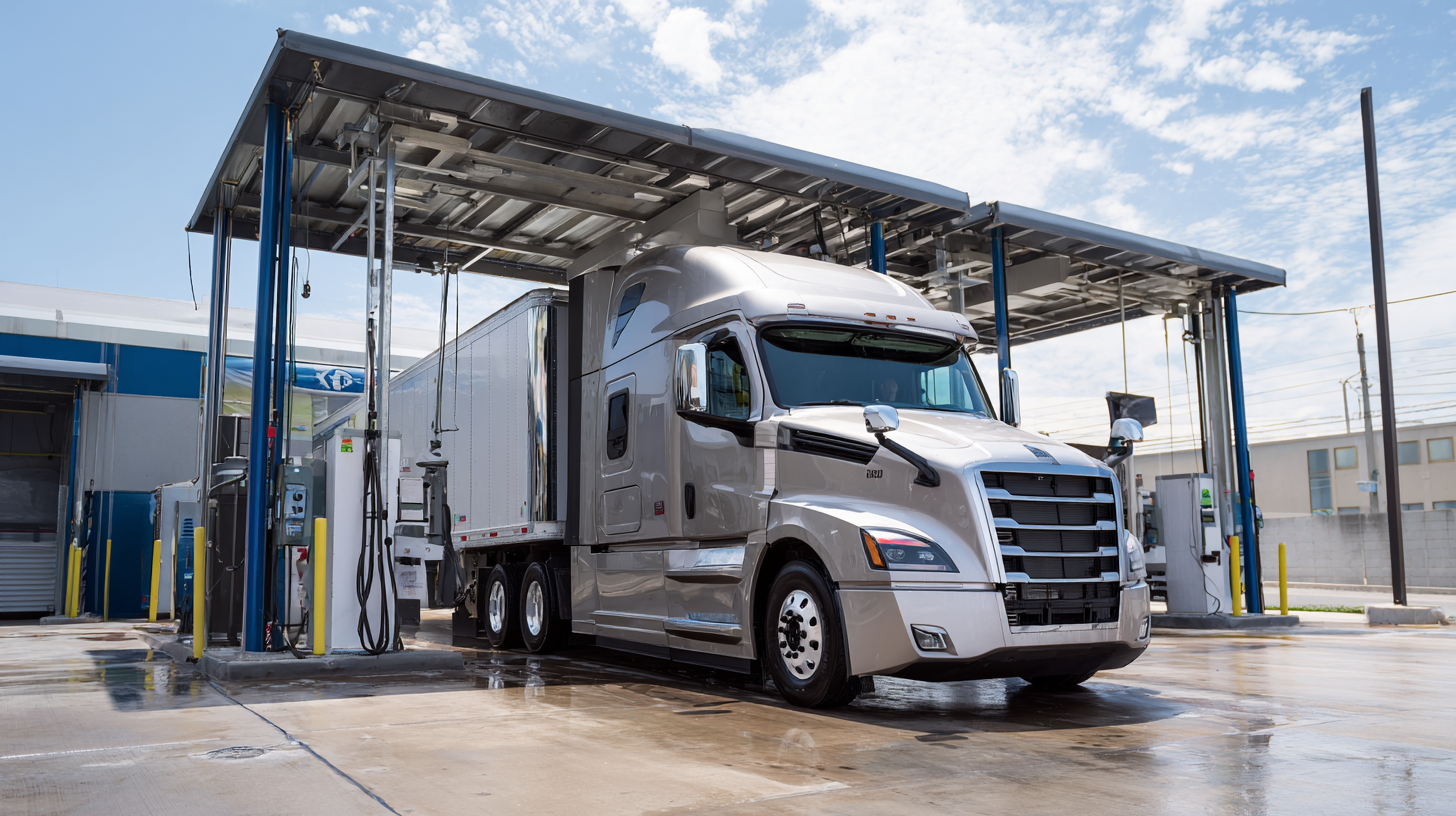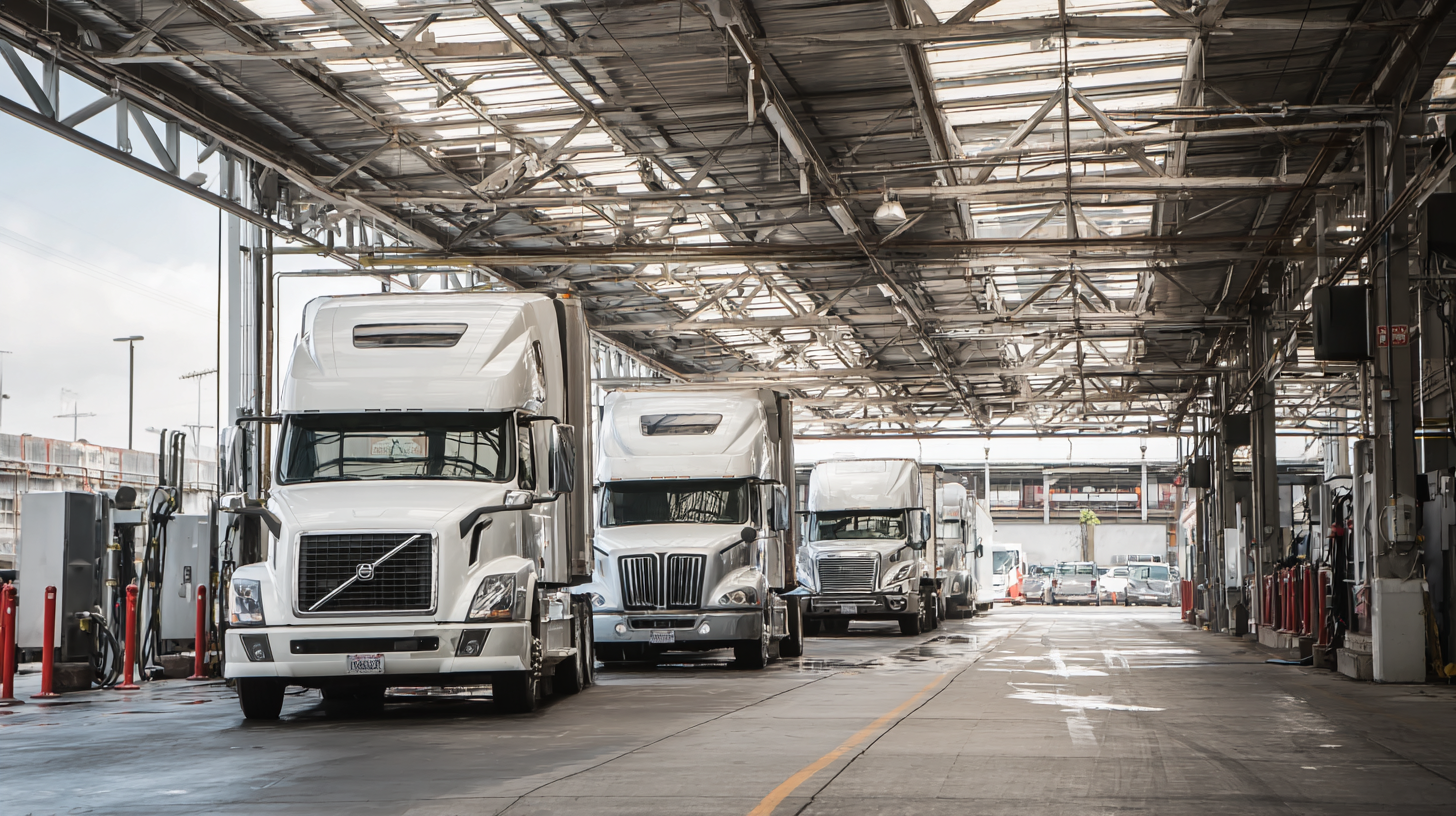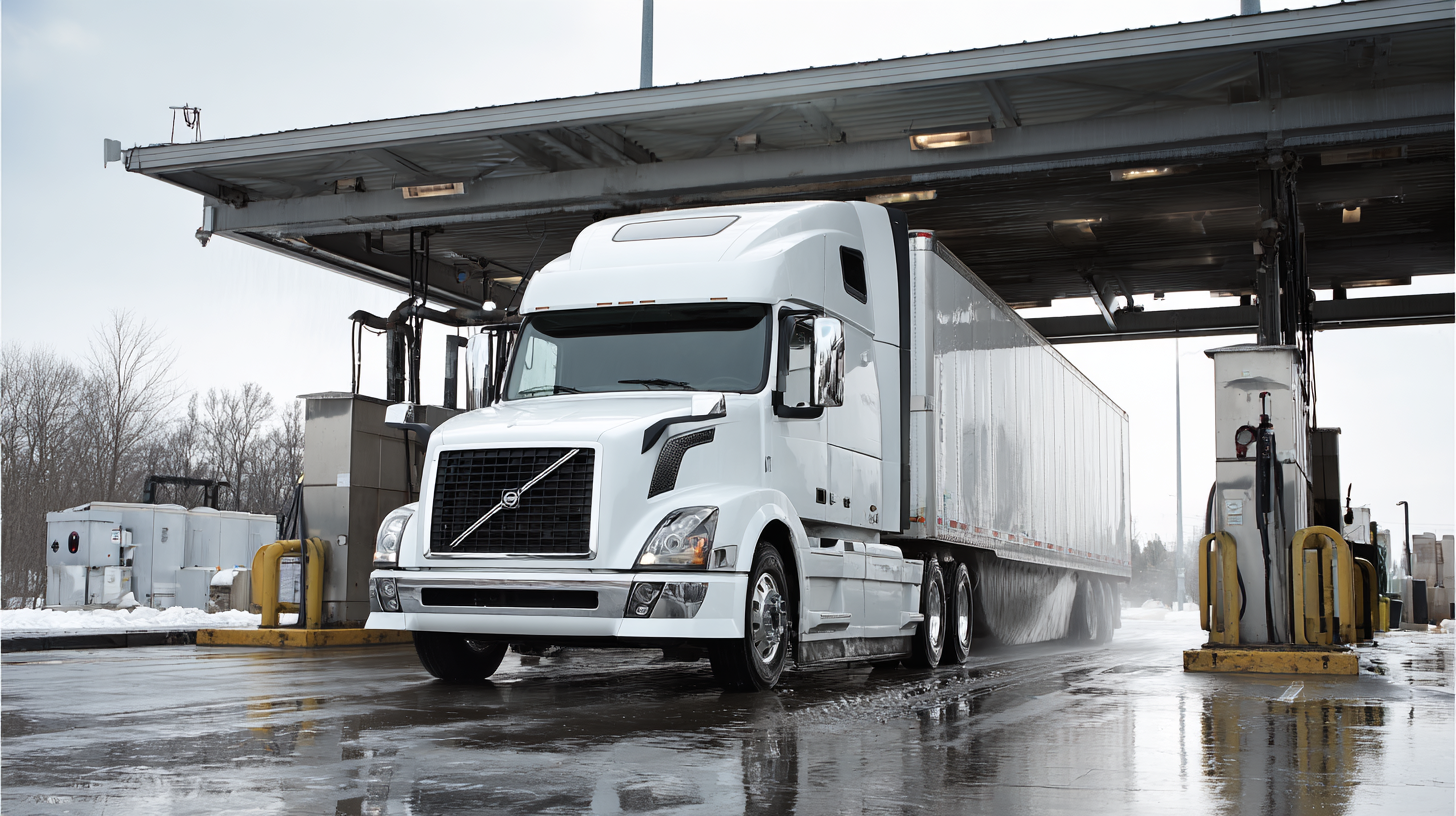Top Strategies for Maximizing Efficiency with Best Automated Truck Wash Solutions
In an era where efficiency is the cornerstone of operational success, the logistics and transportation sectors are increasingly turning to Automated Truck Wash solutions to streamline their processes. According to recent industry reports, automated washing systems can reduce wash time by up to 80%, significantly lower water usage by 50%, and diminish labor costs by nearly 30%. This technological advancement not only enhances the cleanliness and appearance of fleets but also plays a vital role in maintaining compliance with environmental regulations and enhancing vehicle longevity. In the quest for maximizing operational efficiency, understanding the best strategies to implement Automated Truck Wash solutions is crucial for businesses aiming to optimize both their resources and their bottom line.

Maximizing Operational Efficiency: Key Benefits of Automated Truck Wash Solutions
Automated truck wash solutions are transforming the logistics and transportation industry by maximizing operational efficiency. With the implementation of state-of-the-art wash systems, businesses can reduce downtime and improve productivity. A report by the American Trucking Associations indicates that 68% of trucking companies acknowledge that regular vehicle cleaning leads to a longer lifespan for their fleet. Moreover, automated systems minimize water usage and ensure compliance with environmental regulations, often reducing water consumption by up to 50%.
To fully leverage these automated solutions, consider these tips: First, schedule regular maintenance checks for your wash equipment to ensure optimal performance. Having a routine maintenance plan can prevent unexpected breakdowns and costly repairs. Additionally, training staff on best practices for utilizing automated systems can further enhance efficiency, ensuring that your team is well-versed in the equipment's capabilities.
Another essential advantage of automated truck washes is the safety improvements they provide. By streamlining the washing process, companies can decrease the risk of accidents related to manual washing, creating a safer work environment. Industry data shows that automated solutions can reduce slip-and-fall incidents by approximately 30%, giving companies not only a cleanliness edge but also a reputable safety record.
Maximizing Operational Efficiency: Key Benefits of Automated Truck Wash Solutions
Cost-Reduction Strategies: Analyzing ROI of Implementing Automated Wash Systems
Implementing automated truck wash systems presents a significant opportunity for businesses looking to reduce operational costs while maintaining high standards of cleanliness and efficiency. One of the key cost-reduction strategies involves analyzing the return on investment (ROI) associated with transitioning from manual to automated washes. This analysis should consider not only the initial capital required for installation but also the long-term savings on labor costs, water usage, and cleaning materials. By quantifying these savings, companies can clearly see how automation can lead to lower operational expenditures over time.

Additionally, an automated wash system improves consistency and reliability in service delivery. Unlike manual processes, which can be affected by human factors such as fatigue or inefficient techniques, automated systems ensure uniform cleaning results with every wash cycle. This consistency can enhance fleet maintenance schedules, leading to reduced downtime and extended vehicle lifespans. When fleets operate at peak efficiency thanks to regular and thorough washes, the overall cost of ownership decreases, leading to a stronger bottom line.
Companies that take the time to analyze these aspects will find that the investment in automated truck wash solutions is not just beneficial but essential for sustainable growth.
Environmental Impact: How Automated Truck Washes Contribute to Sustainability Efforts
 Automated truck washes are transforming the transportation industry by offering efficient solutions that prioritize not only operational effectiveness but also environmental sustainability. According to a report by the American Trucking Association, trucks contribute approximately 29% of greenhouse gas emissions from the transportation sector. By utilizing advanced automated wash systems, fleets can minimize their water usage and reduce the ecological footprint associated with truck maintenance. These systems typically use high-pressure water jets and biodegradable detergents, which significantly decrease water consumption by up to 70% compared to traditional washing methods.
Automated truck washes are transforming the transportation industry by offering efficient solutions that prioritize not only operational effectiveness but also environmental sustainability. According to a report by the American Trucking Association, trucks contribute approximately 29% of greenhouse gas emissions from the transportation sector. By utilizing advanced automated wash systems, fleets can minimize their water usage and reduce the ecological footprint associated with truck maintenance. These systems typically use high-pressure water jets and biodegradable detergents, which significantly decrease water consumption by up to 70% compared to traditional washing methods.
Moreover, the integration of water recycling technologies in automated washes allows for the reuse of water, further promoting sustainability. A study by the Environmental Protection Agency suggests that modern automated truck washes can reclaim up to 90% of the water used in the washing process. This not only conserves precious water resources but also reduces the burden on local wastewater management systems. As the trucking industry seeks to improve its sustainability metrics, adopting automated washing solutions represents a critical strategy in aligning operational practices with environmental conservation efforts.
Technological Advancements: Innovating Truck Wash Solutions for Enhanced Performance
The transportation industry is witnessing a significant transformation driven by technological advancements, particularly in automated truck wash solutions. As electric vehicles (EVs) gain traction, the need for efficient, eco-friendly cleaning systems has never been more pressing. Innovations in automated washing technology are not only streamlining operations but also reducing water consumption and energy use. The integration of smart sensors and IoT technologies allows for real-time monitoring and control of washing processes, ensuring optimal performance while minimizing resource waste.
Moreover, emerging trends in sustainability are revolutionizing the truck wash sector. For instance, the incorporation of biogas technologies provides a renewable energy source, enabling facilities to operate more sustainably. As consumer expectations shift towards durability and ecological responsibility, businesses are compelled to innovate continuously. Automated truck wash solutions are adapting by utilizing advanced materials and cleaning agents that are effective yet gentle on the environment, further enhancing their appeal. This ongoing evolution reflects a broader commitment to innovation and sustainability, setting the stage for a cleaner and more efficient future in transportation services.
Comparative Analysis: Manual vs. Automated Truck Washing in the Logistics Sector
The logistics sector has been increasingly recognizing the importance of vehicle maintenance, particularly in the context of cleaning fleets of trucks. A comparative analysis between manual and automated truck washing reveals significant benefits associated with automation. According to a report by the American Trucking Associations, a well-maintained truck has a 22% better fuel efficiency than one that is not regularly cleaned, underscoring the financial implications of truck wash methods.
Automated truck washing systems can wash an entire fleet in a fraction of the time it takes for manual washing. For instance, a typical automated truck wash can clean a vehicle in under 10 minutes, while manual washing can take up to 45 minutes per truck. This increased efficiency not only reduces labor costs but also maximizes throughput. Furthermore, a survey from FleetOwner indicates that companies using automated truck washes report a 30% reduction in water usage, aligning with sustainability goals in the industry. By investing in automated solutions, logistics companies can enhance operational efficiency while maintaining a commitment to environmental responsibility.